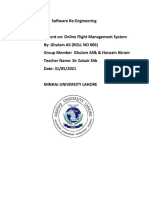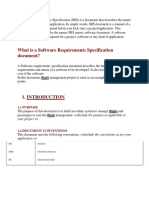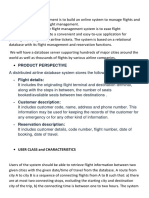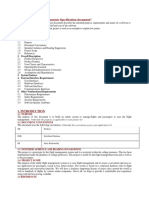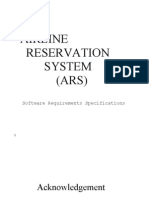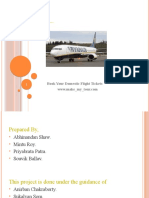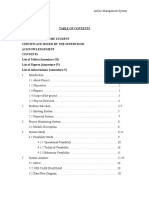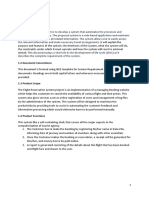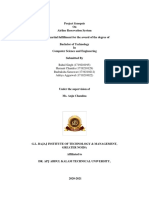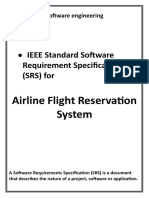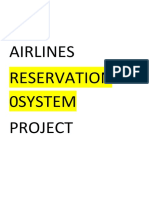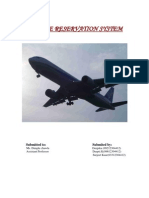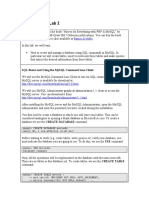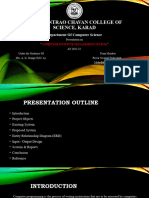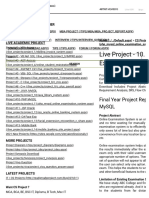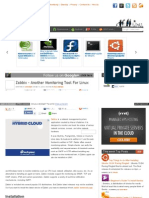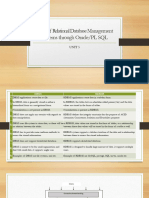Name of Course Instructor: Keshab Maharjan
Course Code: BIC 1224 Course Name: Object Oriented Programing
Program Name: BSc (Hons) Computing Semester: 2 Batch: Jan, 2021
Assignment: Group Proposal Assignment Type (Individual/Group): Group
Assignment Title: Airline Ticket Management System
Max. Marks: Date of Allotment: Date of Submission: 10 Aug, 2021
Name of the Student UCSI ID number Contact Number Email Id Signature
Raj Maharjan 2111076 9886155405 raj2111076@iimscollege.edu.np
Ashit Shakya 2111008 9803360913 ashit2111008@iimscollege.edu.np
Sujal Shakya 2111009 9847694337 sujal2111009@iimscollege.edu.np
Trishal Basi 2111080 9841285106 trishal2111080@iimscollege.edu.np
Sandesh Dangol 2111021 9808810904 sandesh2111021@iimscollege.edu.np
Pranav Rajbhandari 2111030 9860789089 pranav2111030@iimscollege.edu.np
Anubhav Maharjan 2111017 9823114999 anubhav2111017@iimscollege.edu.np
Salil Maharjan 2111011 9840258962 salil2111011@iimscollege.edu.np
Evaluation: ________________________ obtained out of _____________________________________
Evaluator’s Comment:
_________________________________________________________________________________________
_________________________________________________________________________________________
____________________________________________________________________
------------------------------------------
Evaluator’s Signature & Date
1
� ABSTRACT
This project on Airline Management System is the automation of registration process of airlines
system. The system provides information like passenger’s information, flight information, list of
all passengers, it allows storing and retrieving data related to the airline industry and make
transactions related to air travel etc. The system also allows us to add records when a passenger
reserves a ticket. For data storage and retrieval we use MySQL Database. It enables us to add
any number of records in our database. The project “Airline Management System” comprises of
a large number of flights which belong to a particular airline. The system we have implemented
manages different objects viz.
Airline
Airline Employees
Customers/Traveler
Each of these accesses a database schema which has corresponding tables.
Language Used - Java Core
Concept Used - Swing
IDE Used - NetBeans
Database Used - MySQL
2
�Table of Contents
1. INTRODUCTION.................................................................................................................4
1.1 PROBLEM STATEMENT............................................................................................4
1.2 SCOPE OF STUDY........................................................................................................4
2. SYSTEM REQUIREMENTS...............................................................................................6
2.1 SOFTWARE REQUIREMENTS..................................................................................6
2.2 HARDWARE REQUIREMENTS.................................................................................6
3. ENTITY RELATIONSHIP DIAGRAM.............................................................................7
4. USE CASE DIAGRAM.........................................................................................................8
4.1 USE CASE DIAGRAM..................................................................................................8
5. IMPLEMENTATION...........................................................................................................9
5.1 BACKEND IMPLEMENTATION...............................................................................9
5.2 FRONTEND IMPLEMENTATION...........................................................................10
6. SNAPSHOTS........................................................................................................................11
REFERENCES............................................................................................................................22
3
� 1. INTRODUCTION
Airline Management System is the administration of airports and airlines. It includes the
activities of setting the strategy of airports to gather and provide information on airline
commercial and operational priorities. It covers a broad overview of the airline management. It is
also studied as a branch of study that teaches management of airport and airlines. This provides a
broad overview of the airline industry and creates awareness of the underlying marketing,
financial, operational, and other factors influencing airline management. This study provides
information on airline commercial and operational priorities, along with teaching the key
characteristics of aircraft selection and the impact of airport decision making. It provides some
amount of automation in airlines management and helps the airline system in making their
business more efficient. It will also show the attitude of the management that they are aware to
the newly introduced technology and ready to adopt them.
1.1 PROBLEM STATEMENT
This project on Flight Management System is the automation of registration process of
airline system. The system is able to provide much information like passenger’s details, flight
details and the booking details. The system allows us to add records when a passenger reserves a
ticket. It also allows users to update and delete the records based on passenger’s requirements.
For data storage and retrieval we use the MySQL database. It enables us to add any number of
records in our database from the frontend which is Java core. Any changes made in the frontend
will be reflected at the backend.
1.2 SCOPE OF STUDY
Electronically handling of flight’s record enhances accuracy, flexibility, reliability and
minimizes human’s error. We hope to solve customers’ problem involving ticket booking and
reservations. Basically, our system seeks to solve these glaring issues that were present in the
previous system. Our system aims to modernize the booking system. Our system aims to make
4
�the booking system of Nepal airlines more accessible and customer focused while also focusing
on low cost management. The new booking system will be more interactive and will provide the
necessary information to customers. It will also improve the security system of the database and
hopefully prevent any data theft. In conclusion, this new system will be the new and improved
system designed especially for Nepal Airlines with the aim of uplifting our national airlines.
The following are the main driving force of this system.
1) Faster System
2) Accuracy
3) Reliability
4) Informative
5) Reservations and cancellations from anywhere to any place
2. SYSTEM REQUIREMENTS
2.1 SOFTWARE REQUIREMENTS
Operating System Front End Back End Server Documentation: Windows 10
Frontend Software: Java NetBeans 8.2 :JDK 8
Backend Software: MySQL
2.2 HARDWARE REQUIREMENTS
Computer Processor Core i3 Processor Speed 2.3 GHz Processor Hard Disk 400 GB or more
RAM Min 2GB
5
� 3. ENTITY RELATIONSHIP DIAGRAM
An entity-relationship (ER) diagram is a graphical illustration of the relationship between
entities in a database. The ER diagram uses different symbols/shapes to represent three different
types of information. The three basic symbols are: Boxes, Diamonds and Ovals. Boxes are used
to represent entities. Diamonds are generally used for representing relationship and ovals are
used to represent attributes.
In the above diagram, the entity “passenger” contains many attributes i.e. passenger id, address,
name, nationality, gender, phone number, passport number and flight code. The passenger can
pay for their tickets either by using their credit card or by using cheques. The attributes that are
used in the entities cheque and credit card are: passenger id, phone number, cheque number, card
number, paid amount and date of payment.
6
� 4. USE CASE DIAGRAM
4.1 USE CASE DIAGRAM
A use case diagram is a way to summarize details of a system and the users within that system. It
is generally shown as a graphic depiction of interactions among different elements in a system.
Use case diagrams will specify the events in a system and how those events flow, however, use
case diagram does not describe how those events are implemented.
7
� 5. SNAPSHOTS
5.1 FRONT END
Fig 6.1: Login Operation
This is the first page which appears in the screen. Here, User has to enter his / her username and
password. After entering the username and password, if the user click on submit button, it moves
to next page. Else if user press close button, the application closes or the reset is used to reset the
username and password.
8
� Fig 6.2: Mainframe
This is the second page which appears after login. This is the main screen from where user can
get the information about everything.
Fig 6.3: Drop-down Menu
Here user can get the information regarding customer details, journey details, cancellation and so
on. Also User can get information about the ticket list etc.
9
� Fi
g 6.4: Flight Information
Here user can get the information about the flight. User has to enter the flight code. After
entering the flight code it shows all the flights. It shows the flight code, flight name, source
location, destination, capacity, class code and class name. User can choose the business class or
flights according to their needs.
10
� Fig 6.5: Adding Customer
On this page, User has to input the detail for the flight. Just as in the given figure, User has to
input the flight code, Passport no, PNR no, Address, Nationality, Name. User has to choose the
male or female and also user’s phone number. After entering all the details user has to click on
save button and the application saves the detail itself.
11
� Fig 6.6: Payment Details
Here, User has to input how he/she makes the payment. User has to input the PNR no and the
application shows the detail of the flight.
12
� Fig 6.7: Journey Details
On this page, information regarding to journey are shown. The present location and destination
of user is shown on this page.
13
� Fig 6.8: Cancellation
This is the page of cancellation of the flight. If the user has the cancel the flight, he / she can
input the passenger no, cancellation no and date, ticket id and flight code. After entering all the
details, press cancel button to cancel the flight.
14
�5.2 BACKEND RECORDS
In this project database management plays a major plays an important role to make the
application usable for airline bookings. In this project the database management systrem is used
for keeping track of the passenger’s information, flight’s details, payment details, flight seats that
are already reserved, the type of tickets that the passengers have booked, information of
cancelled reservations, etc. The list of the tables used by the database and their description is
given below:
Passenger
In the above table named ‘passenger’ information about the passengers is stored. In the table,
pnr_no is the primary key and it holds the information required to uniquely indentify each
passenger and fl_code is a foreign key to link this table to the flight table. This table holds
information about the name of the passenger, their address, nationality, gender, phone number
and their passport number.
Payment
15
�In the above table named ‘payment’ information about the payment for the tickets are stored. In
the table, cheque_no acts as primary key to uniquely identify each payment and pnr_no acts as
foreign key to link this table to the passenger table. This table holds information about the phone
number of the passenger, their card number, the paid amount and the date of the payment.
Login
In the above table named ‘Login’ information about the login information for the app is stored.
This table holds information of the usernames and passwords that are allowed to login to the app.
This table allows the app to be more secure as it helps deny entry to the app forusers without
proper access.
Flight
In the above table named ‘Flight’ information about the flights are stored. In the table, f_code
acts as primary key to uniquely identify each. This table holds information about the flight code,
name of the flight, the source of the flight and the destination of the flight.
Reservation
16
�In the above table named ‘reservation’ information about the reserverd tickets are stored. In the
table, ticket_id acts as primary key to uniquely identify each reservation and pnr_no acts as
foreign key to link this table to the passenger table and f_code also acts as foreign key to link this
table to flight table. This table holds information about the date of the jouney, the time of the
start of the journey, source of the flight and the destination of the flight.
Type
In the above table named ‘type’ information about the ticket type is stored. In the table,
class_code is the primary key and it holds the information required to uniquely indentify each
passenger and flight_code is a foreign key to link this table to the flight table. This table holds
information about the capacity of the flight and the type of ticket for that flight.
Cancellation
17
�In the above table named ‘cancellation’ information about the cancellation of bookings are
stored. In the table, cancellation_no is the primary key and it holds the information required to
uniquely indentify each passenger and fli_code is a foreign key to link this table to the flight
table and pnr_no also acts a foreign key to link this table to passenger table. This table holds
information about the cancellation date and links it to all other tables.
CONCLUSION
This project on Airline Management System is the automation of registration process of
airline system. The system is able to provide much information like passenger’s details, flight
details and the booking details. The system allows us to add records when a passenger reservesa
ticket. It also allows to delete and update the records based on passenger’s requirements. This
project has guided our path through various aspects of computer science where developing
online application plays a major role.
18
�REFERENCES
19
